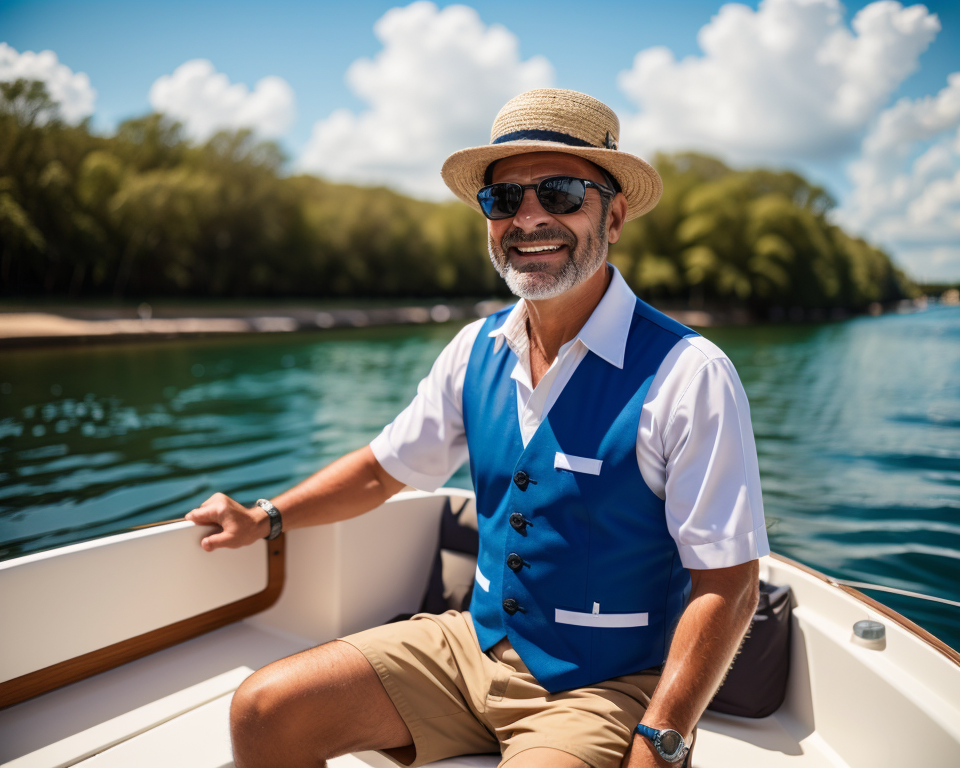The open waters offer an unparalleled sense of freedom and adventure, but with this freedom comes great responsibility. Just like the roads have traffic rules, the waterways also have their own set of guidelines known as the “Rules of the Road” for boaters. Navigating with proper nautical etiquette ensures safety, harmony, and enjoyable experiences for everyone on the water. In this blog post, we’ll explore the importance of understanding navigation rules, key principles to abide by, and how practicing nautical etiquette fosters a positive boating culture.
Understanding the “Rules of the Road” for Boaters:
The “Rules of the Road” for boaters are derived from international maritime law and are designed to prevent collisions, maintain order, and ensure the safety of vessels and their passengers on the water. These rules provide a standard framework for communication and cooperation between boaters, similar to how traffic signals and road signs facilitate safe driving.
Key Principles of Nautical Etiquette:
- Maintain a Proper Lookout: Always have a vigilant lookout while operating your boat. Scan the surroundings for other vessels, obstructions, and potential hazards. Being aware of your surroundings is vital for avoiding accidents.
- Keep to the Right (Starboard Side Rule): Similar to driving on the right side of the road, boats should pass each other on the starboard (right) side. This rule helps maintain a consistent flow of traffic on the water.
- Give Way to Starboard: If you encounter another vessel head-on, the boat on the port (left) side should give way and steer clear of the boat on the starboard side.
- Safe Overtaking: Overtake other vessels only when it is safe to do so and maintain a safe distance from the vessel being overtaken.
- Navigation Lights: At night or during times of reduced visibility, vessels must display proper navigation lights, which indicate their size, direction, and status. Understanding these lights helps other boaters gauge your intentions.
- Maintain a Safe Speed: Operate your boat at a safe speed, considering weather conditions, visibility, and traffic density. Excessive speed can lead to accidents and makes it difficult to respond to unexpected situations.
- Steer Clear of Large Vessels: Give ample space to larger vessels, especially commercial ships, which have restricted maneuverability and need more time to slow down or change course.
- No Wake Zones: Respect “no wake zones” or areas with speed restrictions to prevent damage to the shoreline and protect other boaters, swimmers, and wildlife.
- Anchoring with Caution: When anchoring, ensure you have enough space to swing with the wind or current without interfering with other vessels.
- Be Courteous and Communicate: Use polite gestures and signals, such as sounding short horn blasts or hand signals, to communicate your intentions and intentions to other boaters.
Practicing Nautical Etiquette:
- Boating Education: Take a boating education course to familiarize yourself with navigation rules and nautical etiquette. Knowledgeable boaters promote safer waters for everyone.
- Be Predictable: Avoid abrupt maneuvers or unpredictable behavior that can confuse other boaters. Consistent and clear navigation helps prevent accidents.
- Lead by Example: Set a positive example for other boaters by following the rules and demonstrating respectful behavior on the water.
- Stay Calm in Crowded Areas: In congested areas like marinas or boat ramps, remain patient and composed to avoid accidents and unnecessary tensions.
- Offer Assistance: Be ready to offer help or assistance to fellow boaters in distress. Boating is a community, and supporting one another fosters a friendly atmosphere.
- Respect Wildlife and the Environment: Keep a safe distance from marine wildlife and follow environmental guidelines to protect fragile ecosystems.
Just as we follow traffic rules on the roads for everyone’s safety, nautical etiquette ensures a harmonious and secure boating experience on the water. Understanding and abiding by the “Rules of the Road” is essential for preventing accidents, collisions, and misunderstandings among boaters. Practicing nautical etiquette not only enhances safety but also fosters a positive boating culture of respect, cooperation, and camaraderie. So, let’s sail together, respecting one another, the waterways, and the marine life, to create a shared boating experience that enriches the joy of being on the open waters. Happy boating and smooth sailing!

